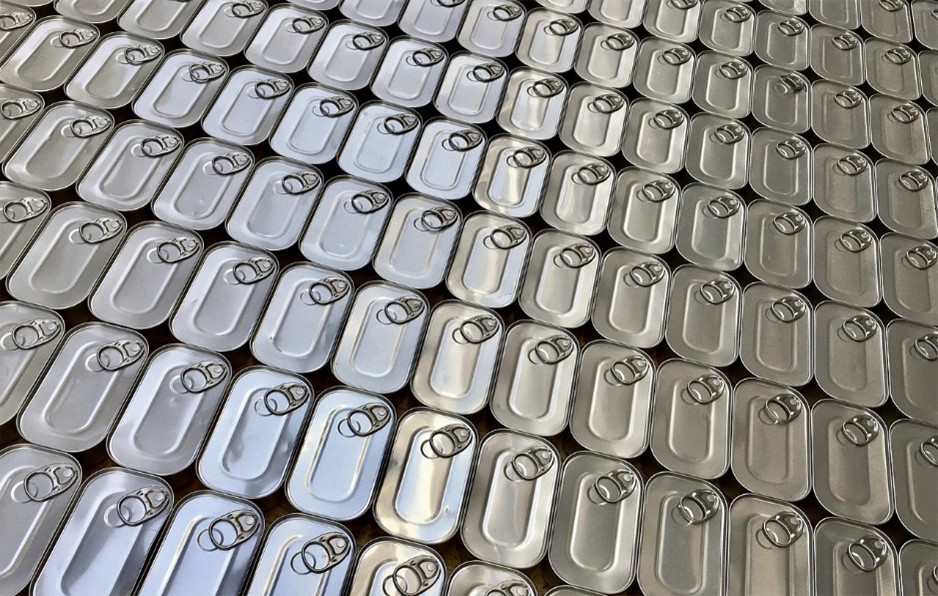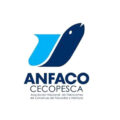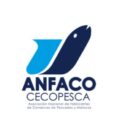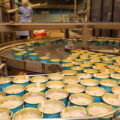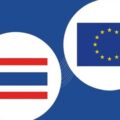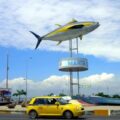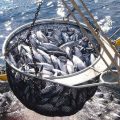ANFACO, the organization that provides support to companies in the marine food sector, has recently warned about illegal and low-quality tuna from Thailand.
Thailand is the world’s largest producer of tuna products (frozen, prepared and canned), with almost 600,000 tons per year, and the largest exporter of prepared and canned tuna products, accounting for more than 30% of the world total. One out of every three cans of tuna exported in the world is Thai.
The main competitive advantage of the industry in Thailand stems from several factors that prevent a level playing field, or competition on equal terms.
Imports raw material (whole tuna) from countries such as Micronesia, Vanuatu, Kiribati, or Nauru. A supply analysis conducted by ANFACO-CECOPESCA indicates that up to 45% of the whole tuna it processes would be ineligible for the European Union due to IUU or sanitary issues. It would be illegal or invalid raw material, meaning a real difficulty of control and compliance assurance within the network of Thai factories.
The country has not ratified fundamental human rights conventions, such as the Convention on the Prevention and Punishment of the Crime of Genocide, or labor conventions, such as the Convention on Freedom of Association or the Right to Organize and Collective Bargaining. This situation allows for recurring abusive conditions in the factories.
On an environmental level, their factories do not meet the same emissions standards as in the EU, nor do they have plans to reduce their carbon footprint, nor do they manage their waste or packaging in a similar way to the EU.
In the area of health, during the last EU audit of 2023, deficiencies continue to be found to be resolved after years of cooperation in this area, demonstrating the difficulties existing in the country for change.
A key point highlighted at the meeting is that Thailand should be treated exceptionally.
Although it has a large processing capacity, it lacks production (fleet), a situation that does not correspond to that of the Philippines or Indonesia. The absence of a fleet, with Thai whole tuna catches of less than 4,000 tons per year, means that they need to massively import raw material from countries, many of them ineligible for the European market, making traceability monitoring difficult considering the deficiencies found in the last inspection that do not allow the Thai authorities to provide reliable guarantees. This would break with the strategy and principles of negotiation in terms of origin and promotion of sustainable fishing practices, since the country does not have a fleet for this purpose and will not be able to supply products with original raw material. “Under no circumstances should Thailand be granted exceptions to the entirely obtained rules of origin or cumulation flexibilities, nor the possibility of fleet acquisition to distort origins,” ANFACO-CECOPESCA stated.
Therefore, ANFACO-CECOPESCA reiterated that Thailand has no comparison with other trade negotiations carried out or in process, both for its industrial structure (main world tuna processor) and for the absence of fleet. Any tariff flexibility or opening of quotas for tuna products would be a lethal blow to the Community’s interests which, with no guarantees of level playing field, would reduce the possibility of exporting to the European market, drastically reducing its 12,000 jobs in Spain, and would mean a radical change in the industrial structure and its investment. A step in the opposite direction of food sovereignty.
This action will be followed up after the European Parliament elections in June and the next round of negotiations between Europe and Thailand, which will also take place in June.
Recently, an unprecedented delegation of NGOs (EJF and OCEANA) and top representatives of the value chain (EUROPECHE and ANFACO-CECOPESCA) met in Brussels with the Director General of DG-MARE, Charlina Vitcheva, in order to express their serious concern that the negotiation processes of free trade agreements currently underway, such as Indonesia, the Philippines and, especially, Thailand, may take advantage of the change of political cycle in the EU to make technical progress in matters that harm Community interests under the current trade policy, and also to request that agreements that reduce Europe’s global influence in the fight against IUU fishing be avoided.
In October 2023, more than 90 NGOs sent a joint letter to the Thai Prime Minister, expressing the serious consequences of the decisions that his government intended to implement, aimed at a total deregulation of fishing, which could also allow situations such as child labor or more lax port controls. This concern is in addition to the requests of the Spanish processing sector, led by ANFACO-CECOPESCA, which has repeatedly requested the total exclusion of tuna from the negotiation, considering that “Thailand is not ready, nor prepared, nor willing to adapt to European standards”. This message has again been conveyed by the representative of ANFACO-CECOPESCA at this meeting, recalling the support of other European industry associations, such as ANCIT (Italy) and ANICP (Portugal), which together represent more than 90% of European canned tuna production, or the support received in the Market Advisory Council (MAC, for its acronym in English).
In view of the above, ANFACO-CECOPESCA reiterated that Thailand has no comparison with other trade negotiations carried out or in process, both for its industrial structure (main world tuna processor) and for the absence of a fleet. Any tariff flexibility or opening of quotas for tuna products would be a lethal blow to the Community’s interests, which, with no guarantees of level playing field, would reduce the possibility of exporting to the European market, drastically reducing its 12,000 jobs in Spain, and would mean a radical change in the industrial structure and its investment. A step in the opposite direction of food sovereignty.
This action will be followed up after the European Parliament elections in June and the next round of negotiations between Europe and Thailand, which will also take place in June.

